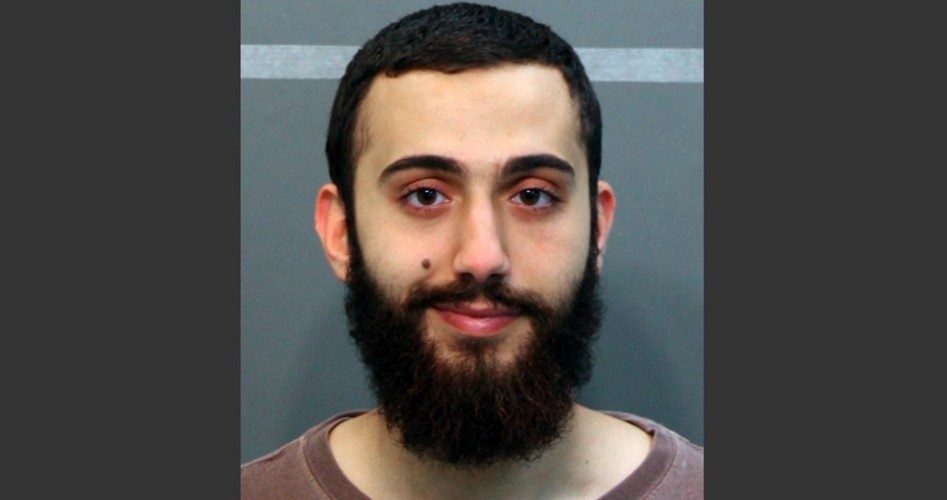
After retrieving and analyzing the Chattanooga shooter Mohammad Youssef Abdulazeez’ (shown) diary, the FBI claimed that it still cannot find any direct connection to ISIS or that he “was inspired by the Islamic State” or the Koran. Instead, claims by the FBI were made that the shooter suffered from depression, entertained thoughts of suicide, was deeply in debt, and engaged in rampant and excessive use of drugs, marijuana, and alcohol. FBI agents also claimed that he had to use sleeping pills after the 12-hour night shifts where he worked.
But, after extensive analysis of his diary and interviews with the shooter’s parents, the FBI still couldn’t find a motive for his murder of military servicemen last Thursday. Even a “family spokesman” claimed that the shooter “showed no outward signs of radicalization,” only that he was “susceptible to bad influences” from one source or another. That same spokesman claimed that the seven months he spent in Jordan weren’t in any way responsible for the change in his behavior because he was sent there in order to “get him away from bad influences in the U.S.”
There remain more unanswered questions in light of the new revelations. If the shooter was near bankruptcy, how did he manage to acquire a virtual arsenal of firearms, including the AK-47 used in the attack? It was reported that he spent a lot of time practicing at a local shooting range, using costly ammunition that must have been paid for somehow. It was also said that two days before his attack he was able to rent a new silver Mustang that he used to joyride around in the middle of the night with his friends. Just how did that happen, if he was near bankruptcy?
It takes money to buy alcohol, drugs, marijuana, painkillers, and sleeping pills. Where did the money for those come from?
Yet the FBI, according to various sources, claimed only that Abdulazeez was mentally unstable, possibly psychotic (varying between appearing to be a quiet, serious student of Islam with regular Friday night visits to his local mosque, and partying until all hours with his friends, racing around in his rented Mustang), and nervous about an upcoming court date following a DUI arrest in April.
Thoughts of “becoming a martyr” revealed in his diary apparently indicated no radical Islamist tendencies to the FBI. Nor did the FBI appear to be impressed with cryptic comments the shooter made to a friend just hours before unleashing terror on military personnel, including, “Whosoever shows enmity to a friend of Mine, then I have declared war against him.” Could this refer to Mohammad’s teaching on “the subjugation of any other faith, culture or system of government that differs from Islam and Sharia Law” as noted by G.M. Davis, the author of House of War. According to Davis, who based his book on Islam’s own sources, attacks such as that of the Chattanooga shooter are “right out of orthodox Islam and are grounded in the Koran and the life of Muhammad … that poses an existential threat to Western Civilization.”
The FBI ignored changes in Abdulazeez’ behavior and attitude reported as by his close friends following his return from his “rehab” trip to Jordan. One friend said that he became increasingly outspoken about events and policies in the Middle East, noting, “He felt Jordan, Qatar, Saudi Arabia were not doing enough to help, and that they were heavily influenced by the United States … I’d say his level of understanding and awareness really rose after he came back.”
Instead, the FBI has painted an incomplete picture of the shooter and his potentially radicalized background, while claiming that he was a “disturbed, suicidal young man using drugs, preparing for bankruptcy and facing an appearance in criminal court” according to reports from ABC News.
Regardless of Abdulazeez’ motives for the shooting, or any influences he may have had from radical Islam, freedom-loving Americans must be careful not to allow such an event to produce a mindset of paranoia. Such a mindset can easily lead to more government control over society, a strengthened police state, and more unconstitutional foreign military intervention (in Muslim-dominated lands, typically) all in the name of protecting us from the “bad guys.”
Photo of Chattanooga shooter Mohammad Abdulazeez from April 2015: AP Images
A graduate of an Ivy League school and a former investment advisor, Bob is a regular contributor to The New American magazine and blogs frequently at www.LightFromTheRight.com, primarily on economics and politics.



